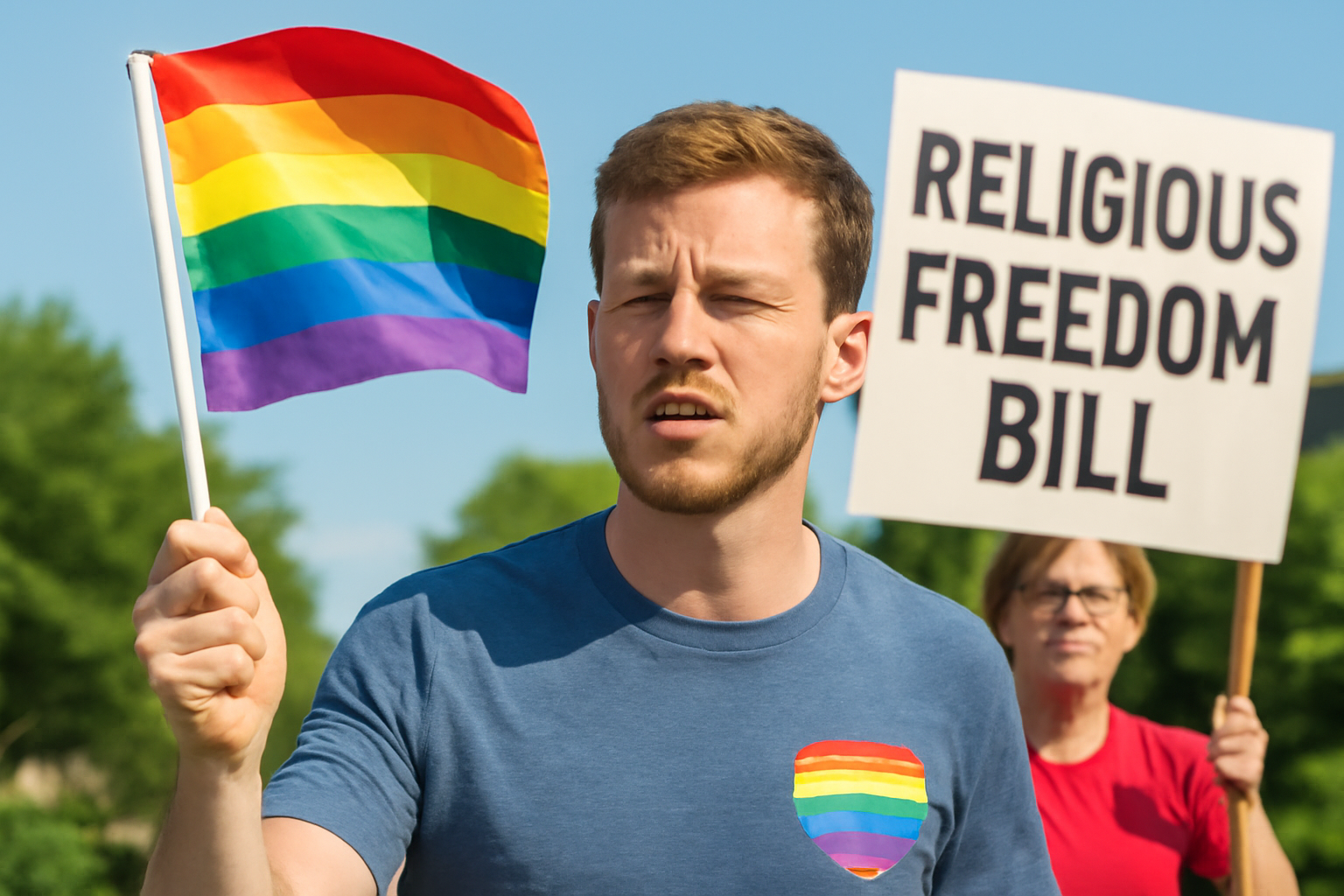
In recent political developments, Georgia's state legislature is considering a religious freedom bill that has sparked significant debate and concern, particularly among marginalized communities. Advocates warn that the proposed legislation could disproportionately affect LGBTQ+ individuals, leading to potential discrimination under the guise of religious liberty.
The proposed bill, championed by certain members of the Georgia GOP, aims to enhance religious freedoms, ostensibly protecting individuals and businesses from being compelled to act against their religious beliefs. However, opponents of the bill argue that it is a thinly veiled attempt to roll back hard-won protections for LGBTQ+ people and other minority groups.
Understanding the Proposed Legislation
The core of the bill centers around providing legal cover for individuals and organizations that refuse services based on religious convictions. While proponents claim it safeguards religious expression, critics highlight the potential for misuse. They argue that such laws have historically enabled discriminatory practices, particularly against LGBTQ+ individuals seeking essential services, such as housing or business opportunities.
Similar bills have been introduced in various states, often under the banner of religious freedom. However, they have frequently faced backlash for their implications on civil rights. In Georgia, the conversation echoes past debates that have seen public outcry from civil rights groups, businesses, and citizens alike.
Impact on the LGBTQ+ Community
The LGBTQ+ community in Georgia is understandably anxious about the future of their civil rights. Organizations that advocate for these communities have been vocal in their opposition, emphasizing that the bill could erode existing protections. Discrimination, they argue, could manifest in numerous ways, including denial of services, job opportunities, or even healthcare.
"This bill is a step backwards," said one advocate. "It opens the door for legalized discrimination under the pretense of protecting religious beliefs. Our community has fought too long and too hard for basic rights to see them undermined now."
Reactions from Various Stakeholders
In the business sector, there is considerable concern about the economic implications of such a bill. Georgia's economy, which benefits from a diverse and inclusive workforce, could suffer if the legislation is perceived as hostile to minority groups. Some businesses fear that passing this bill could lead to boycotts or discourage new companies from setting up operations in the state.
Moreover, legal experts have raised alarms about the possible conflicts this bill could introduce with existing federal protections. Should the bill pass, it is likely to face legal challenges that could ascend to the federal courts, testing the balance between religious freedom and anti-discrimination laws.
Community and Political Response
Community leaders and civil rights organizations have organized rallies and campaigns to oppose the bill, aiming to raise awareness and mobilize public opinion. The political response has been mixed, with some lawmakers firmly supporting the bill as a necessary protection of religious rights, while others stand with civil rights advocates in opposition.
For many, the crux of the issue lies in finding a balance between protecting religious expression and ensuring equal rights for all citizens. "We must be careful not to allow religious freedom to become a license to discriminate," noted a concerned legislator.
The Path Forward
As the legislative process unfolds, the future of this bill remains uncertain. Public hearings and discussions continue, with both sides presenting their arguments. It is a critical moment for Georgia, with the potential to set precedents that could influence similar debates across the country.
For the LGBTQ+ community and their allies, vigilance and advocacy are paramount. Ensuring that voices are heard and rights are protected will be crucial in the coming weeks and months. Regardless of the outcome, this debate highlights the ongoing struggle for equality and underscores the importance of remaining engaged in the democratic process.
In conclusion, the proposed religious freedom bill in Georgia is more than just legislation; it is a reflection of broader societal values and the ongoing tension between different interpretations of rights and freedoms. As this issue evolves, it will undoubtedly continue to shape the dialogue around civil rights and religious liberty in Georgia and beyond.
Related Posts
Pride Month in Latin America: Protests and Demands for Equality
**Celebrating Pride and advocating LGBTQ+ rights in Latin America** Pride Month in Latin America was a lively mix where celebration met activism. Communities united, not just throwing a party but making a stand—demanding equality and pushing governments toward better protection and rights recognition. Throughout Latin America, pride events erupted in marches and cultural displays, each with a c [...]
Transgender Erasure Actions Implemented by National Park Service
```html Trump administration's impact on national park service and transgender recognition The Trump administration made notable moves in undermining transgender representation, which included directing agencies like National Park Service not include "T" and "Q" when they refered “LGBTQ” in any official communication. This move seems part a broader plan by this administration aimed at reducin [...]
Drag Night Extravaganza: Daddies & Baddies at Atlantic City's Anchor Rock Club
Atlantic City, NJ, isn't just about its casinos and boardwalk—it's a hub bursting with energy and entertainment. One event that truly captures this spirit? The "Daddies & Baddies" drag night at Anchor Rock Club. This vibrant night celebrates amateur drag in all its glory, offering a kaleidoscope display where creativity and community unite. If you're looking where inclusivity and creativity take [...]